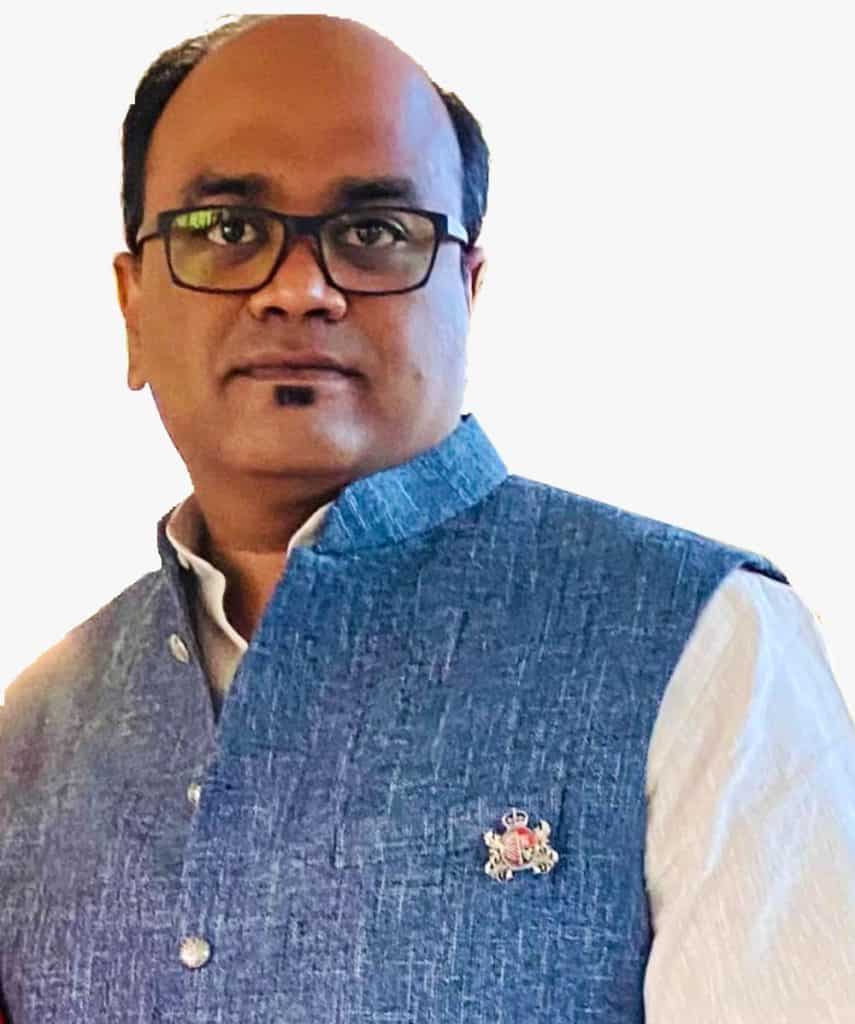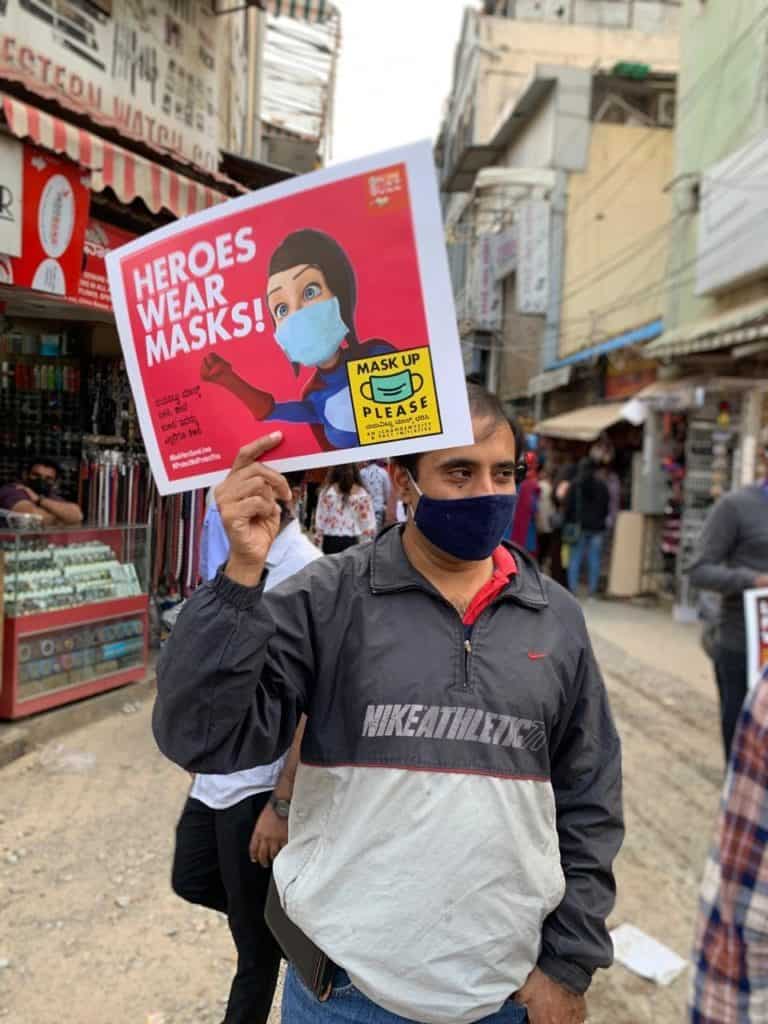Last week, the new SARS-CoV-2 variant was revealed to be the reason behind the rapid surge in Covid-19 cases in South and East England. It is being referred to as VUI (Variant Under Investigation) 202012/01, or the B.1.1.7 lineage.
1108 cases of this strain have been identified so far. While this new variant spreads more rapidly than other strains, there is no evidence yet that this variant causes severe disease or mortality. Given this all travel from and into the UK has been halted as a precautionary measure in our country.
For the first time in the last few weeks India has reported a 70% decline in cases from the time when the Covid-19 wave was at its peak in the country in mid-September. India’s cases stand at 10.1 million and a total of 146,000 deaths. Karnataka stands at 910,000 cases and over 12,000 deaths with Bengaluru contributing to approximately 370,000 cases and over 4,200 deaths.
In the meantime, Karnataka has begun testing passengers from the UK for the new coronavirus strain.
Given the unpredictable nature of this mutating virus and despite cases flattening out in India for the time being, it’s safe to assume that the pandemic is far from over.
Harini Raghavan talks to Dr Giridhar Babu, Epidemiologist, Technical Covid Task Force, Government of Karnataka to understand why.
When do you think Bengaluru will get the vaccine?
Stage 3 results of the indigenous vaccine are not available. Stage 2 results are available and the companies may have filed with the Drugs Controller General of India (DGCI)
The SEC is considering the evidence, and recommendations should be available in the first week of January 2021.
Since trials and manufacturing happen in tandem, we would be able to start off vaccination and hopefully, 30 per cent of the population intended to be vaccinated as part of the 1st phase vaccination will be completed by the end of Jan 2021 or Feb 2021.
When do you think total normalcy would resume?
This virus has surprised everyone. Has thrown governments off balance! India has done well so far. We have been able to control the size of breakout and limit mortality numbers.
The task forces are really efficient at the state level and corporation level. GoK has been very responsive to (expert) recommendations. So hopefully if all goes well and the vaccination process is on schedule we should have some semblance of normalcy in the next 7 to 8 month time period.
There is talk about a second wave in India, what are your thoughts?
As I said, this pandemic is very unpredictable and has baffled all of us. All we can do is to keep monitoring the 7- day average of cases. In an ideal state, Reproductive number (R0) should be less than 1. In the thick of the pandemic, every one person infected can infect close to 2 to 3 people taking R0 to 2.5. However, when the curve is flattening the number is under 1. Currently, R0 is under 1 in Karnataka and it would be useful to keep tracking the 7- day average to understand where we are pandemic- wise. That’s all we have control over for now.

With cases tapering down in Bengaluru and Karnataka what would your advice be for citizens?
Mask and physical distancing should continue. This should be a way of life for all of us at least for the next year or so. Even if one has had the vaccine, there is no certainty that he or she would not contract the virus or be a carrier. This risk exists at least until a majority of the population is vaccinated. The vaccine reduces the toll of the virus on the body and diminishes the risk of death from the virus. Since the virus is here to stay for sometime, we might as well program our thinking while living with the virus. To reiterate, masking and physical distancing should continue with full vigour.
World over bars and restaurants are super spreaders of the virus. With things opening up in the city what would your advice?
Complete lockdown or fully opening up is not advisable. Fully opening up before a vast majority of the population is vaccinated increases the risk of transmission of the virus while an extended lockdown will affect business.
Many recommendations have been made to the GoK to not open up all at once and this is being currently implemented. However, bars and restaurants have opened up the risk of transmission exists. Talking loudly in bars is a reality and virus propagation is faster when people speak loudly. It’s difficult to eat or drink with the mask on, however, it would be good if people stay masked and talk while not eating or drinking in a bar or a restaurant.
Association of Restaurants and Pubs apart from following government advisories diligently should initiate and implement socially responsible themes. While businesses should thrive , people definitely should not die.

What else should BBMP and GoK do as next steps?
Thorough planning and mapping of frontline workers, senior citizens and people with comorbidities in the city / state needs to be done while carrying out extensive vulnerability assessment surveys. This has to be done in a detailed fashion so that the multiple phases of vaccination is executed seamlessly and no single person gets missed from the vaccination process.
There are over 2000 returnees from UK between December 1 to 21. Only 197 people have been tracked, a few of have tested positive for the new strain is there a reason for worry?
Contact tracing is very exhaustive yet a highly useful exercise in interrupting transmission. As we are in the early phase of the spread of the new mutant virus, extensive contact tracing needs to be deployed early. Contact tracing data can aid epidemiologists in knowing the impact and effect of the virus in the local population. Although, BBMP has stepped up the contact tracing process and now also has increased manpower and resources for contact tracing it, is the responsibility of the citizens to actively participate and inform the authorities.
As per the Standard Operating Procedures (SOPs) issued by the MHA, primary contacts must undergo institutional quarantine, where their health and other parameters may be monitored.
In light of the new mutating virus, is it advisable for colleges to be opening up in January 2021? Can the task force recommend that they open in the new academic year?
With the vaccines in sight, we should relook the situation in early 2021 and then create a roadmap, keeping children’s health in mind. Along with vaccines, physical distancing and masking up should be strictly followed.
Your opinion on fines and targets for BBMP Marshals?
Currently, India is the poster boy for Covid management. Karnataka especially has been extremely responsive and quick to seek counsel and implement recommendations. However, citizens also have to cooperate by religiously following masking and physical distancing.
BBMP marshals are doing a fine job of enforcement via fines. However, there has to be a fine balance between enforcement and empowerment. Targets could take away the time and liberty of the marshal to create awareness and empower people to wear masks and practice social distancing. The government must keep at creative ways to motivate people to wear masks and maintain distancing.
Communication and awareness initiatives around COVID, masks and social distancing must continue regularly. The government must rope in as many citizen volunteers to achieve scale and critical mass. More citizens should come forward. We have a lot to do collectively!

Colonel Rajbir Singh, Chief Marshal, BBMP, says there are many instances of citizens not wearing masks. “Some people refuse to wear the mask while continuing to argue with us — our health and our family’s health is at risk here!.” BBMP is now filing FIRs in such situations, under Karnataka Epidemic Diseases Ordinance 2020.
BBMP employs 216 marshals across the city in 54 teams, working 12 hours a day. In addition, 198 ward-level SWM marshals also participate in COVID duties for a few hours a day. He appeals to citizens to report zones and wards where social distancing/masking norms are being flouted, and so the Marshals can step in to counsel and penalise.
We still have a long way to go before we achieve absolute normalcy. Colonel Rajbir Singh adds, “India has done very well in terms of enforcement however we definitely need to be more socially responsible. That our actions will affect the health and well being of others should be ingrained in our system without someone having to tell us about it.”
Colonel Rajbir Singh, Chief Marshal, BBMP, says there are many instances of citizens not wearing masks. “Some people refuse to wear the mask while continuing to argue with us — our health and our family’s health is at risk here!.” BBMP is now filing FIRs in such situations, under Karnataka Epidemic Diseases Ordinance 2020.
BBMP employs 216 marshals across the city in 54 teams, working 12 hours a day. In addition, 198 ward-level SWM marshals also participate in COVID duties for a few hours a day. He appeals to citizens to report zones and wards where social distancing/masking norms are being flouted, and so the Marshals can step in to counsel and penalise.
We still have a long way to go before we achieve absolute normalcy. Colonel Rajbir Singh adds, “India has done very well in terms of enforcement however we definitely need to be more socially responsible. That our actions will affect the health and well being of others should be ingrained in our system without someone having to tell us about it.”
Yes, it’s time for collective social responsibility. May we tide over the rest of the pandemic with more voluntarism, consideration for self/others and, as they would say in Sweden, bring on the “folkvett” (good conduct and behaviour).

BCP is actively involved in enforcing mask and social distancing protocols in Bengaluru city. Our staff across 109 police stations fine those who are not following these protocols. This is being done independently of the lovely work the BBMP Marshals are doing. We also assist them wherever required. For instance, we continue to help BBMP file and action complaints on serial masking and social distancing offenders under Karnataka Epidemic Diseases Ordinance 2020.
Isha Pant, Deputy Commissioner of Police, Command Centre, Bengaluru
A good overview of covid,past,present and future.The answers to querries on the aftermath of the much awaited vaccine leaves,admittedly,all who felt all will be well thereafter,little disappointed.But then we have to face facts.Along with vaccine that we need to persist with mask,social distancing etc is indeed a matter for adoption sacro sanctl.There must be awareness all round.And each one of us should be support system of sorts to the Marshalls,who are doing a wonderfuljob.There must be awareness campaigns,innovative and relevant,in which the likes of Rotary,Lions,mahila mandal and similar service organisations must be involved.For example organise a show for both men and women where they can showcase attractive and effective masks.An award for toppers should help in giving a nudge to awareness.
In a nutshell this interview has succinctly brought out that the game is not over and we need to be guarded for quite some time to come.
A useful and timely write up.Keep it up.
I wish the flight arrivals were monitored well instead of tracing as the UK virus was known before the flights landed. Colonel’s efforts with his Marshalls’ team is good to see but for a city like Bangalore this force is too little. People like Harini and their effort to volunteer and alert people I could see today fell on deaf ears. And the callous attitude of not wearing mask in open public places is scary. People like Harini don’t give up easily. That is refreshing to know.